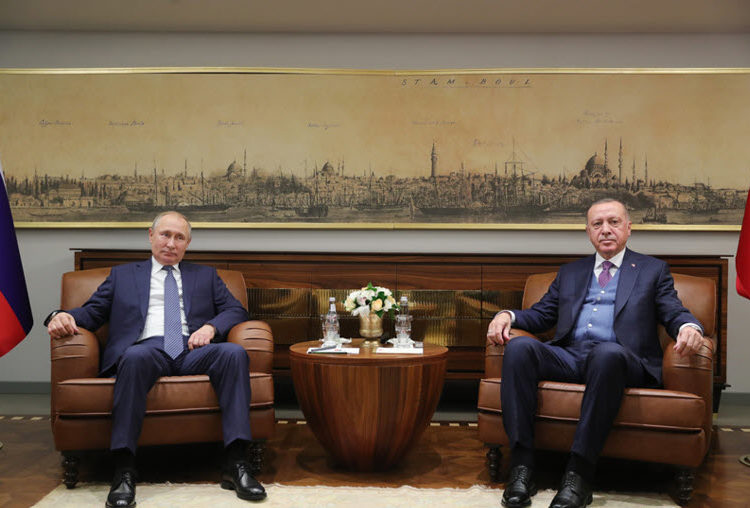Nordic Monitor
Turkish President Recep Tayyip Erdoğan’s recent remarks on the Libya peace conference in Berlin revealed that the joint Russian-Turkish initiative for a ceasefire in Libya might be an attempt to take the lead in the intensified European push to end clashes between rival groups.
Interestingly, the embassies of France, Germany, Italy, the UK and the US and the EU Delegation in Libya welcomed the acceptance by the Libyan parties of a ceasefire on January 12 without mentioning the Russian-Turkish call for a ceasefire in their statement.
Moreover, the US diplomatic mission in Libya noted that the deployment of Russian mercenaries and Turkish-supported Syrian fighters has significantly degraded security in the country.
The Russian and Turkish presidents, who back opposing sides in the Libyan conflict, called for a ceasefire in the war-torn country, while Italian Prime Minister Giuseppe Conte hosted Gen. Khalifa Haftar, the Libyan National Army (LNA) and representatives of National Accord Government (GNA) in Rome on January 8. On the same day Prime Minister of the GNA Fayez al-Sarraj met with EU leaders in Brussels.
After Haftar left the Russia-Turkey led peace talks in Moscow on January 13 without signing an agreement, President Erdoğan promised to teach him a lesson if he didn’t stop his attacks on the GNA, Turkish media reported.
In a speech at the Turkish Parliament the following day, President Erdoğan exposed his efforts aimed at guaranteeing Qatar’s participation in the peace conference, saying that “Berlin will host a meeting where leaders will discuss Libya on Sunday. A number of countries, including the US, will attend the conference. We informed all parties that Tunisia and Qatar should also be present at the table; however, we haven’t yet received a positive response.”
According to Asharq al-Awsat, Haftar rejected Turkey’s role as a mediator in Moscow and demanded the formation of a UN committee to oversee the breakup of militias that support the Tripoli government.

In parallel to the Italian prime minister’s meetings, US officials met separately with GNA Interior Minister Fathi Bashagha and Haftar in Rome on January 9 to “reiterate to all Libyan parties the critical importance of forging a durable political solution to the crisis that would de-escalate military activity and chart a course towards a better future for all Libyans.”
According to a press release by the US Embassy in Libya, the US delegation voiced the serious concern of its administration “about toxic foreign interference in the conflict and reaffirmed the United States’ full support for the sovereignty and territorial integrity of Libya.”
Furthermore, the release underlined that the US delegation encouraged both parties to return to intra-Libyan political talks, “which can establish a common basis for progress on the issues that divide them.”

German authorities initiated international consultations on Libya, known as the Berlin Conference, to support the mission of UN Special Envoy for Libya Ghassan Salame. The first round of consultations was conducted in Berlin on September 17, 2019 with the participation of representatives from Germany, Russia, Turkey, France, Italy, Egypt, the United Kingdom, the United Arab Emirates, the US, the EU and the Arab League. The second meeting, planned for October 2019, was postponed.
Germany hosted another international conference on resolving the Libyan conflict on Sunday.












